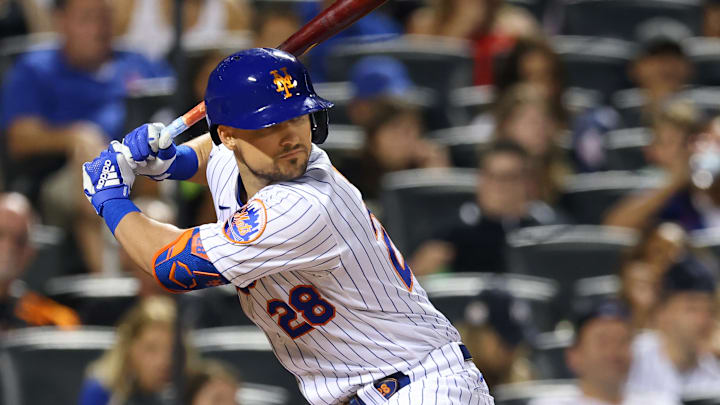
Despite the arguments in favor of Davis being the team’s designated hitter, there are a couple complications that need to be addressed. The first issue with Davis assuming the primary designated hitter role is that superior players would have to lose at-bats in order for this plan to be implemented. In particular, the two players that are likely to lose at-bats with Davis being the designated hitter are Jeff McNeil and Robinson Cano, the latter of whom is returning from a year-long drug suspension.
There are a lot of unknown factors at play here. How will Cano perform after not playing for a year? Entering his age-39 season, Cano could easily see a regression in his play. On the other end, he also compiled a batting average over .300 in 2020. If he hits similarly to start off 2022, it’s going to be hard to make him a permanent bench player.
McNeil also hit over .300 in 2020, and he will enter the season as the projected starting second baseman given the fact he is an all-around player, being both a capable defensive infielder and hitter. The fact that both Cano and McNeil are left-handed hitters also makes them valuable to the team’s lineup.
Jeff McNeil and Robinson Cano will sacrifice playing time with Davis serving as the primary designated hitter. Do the Mets really want to do that?
So the big question is: are the Mets really better off with Davis getting the majority of the at-bats at designated hitter, even if it means McNeil and Cano will have to sacrifice at-bats and starts? Personally, I still believe McNeil and Cano are better overall players than Davis. Although McNeil had a down year in 2021, he is more versatile in the field, plays better defense, and has better speed. The only advantage Davis has over McNeil is in the power department. Davis has clobbered 33 home runs over 269 games for the Mets, whereas McNeil, who is not known for his power, has hit 34 home runs in three years, but it took him 305 games to make that mark.
Cano, meanwhile, beats Davis at his own strength. Cano has hit 33 home runs over a span of 239 games the past three seasons in which he played. If he returns to the Mets in good shape and produces, Cano’s contract makes it more likely that the team will give him more of the designated hitter reps over Davis.
